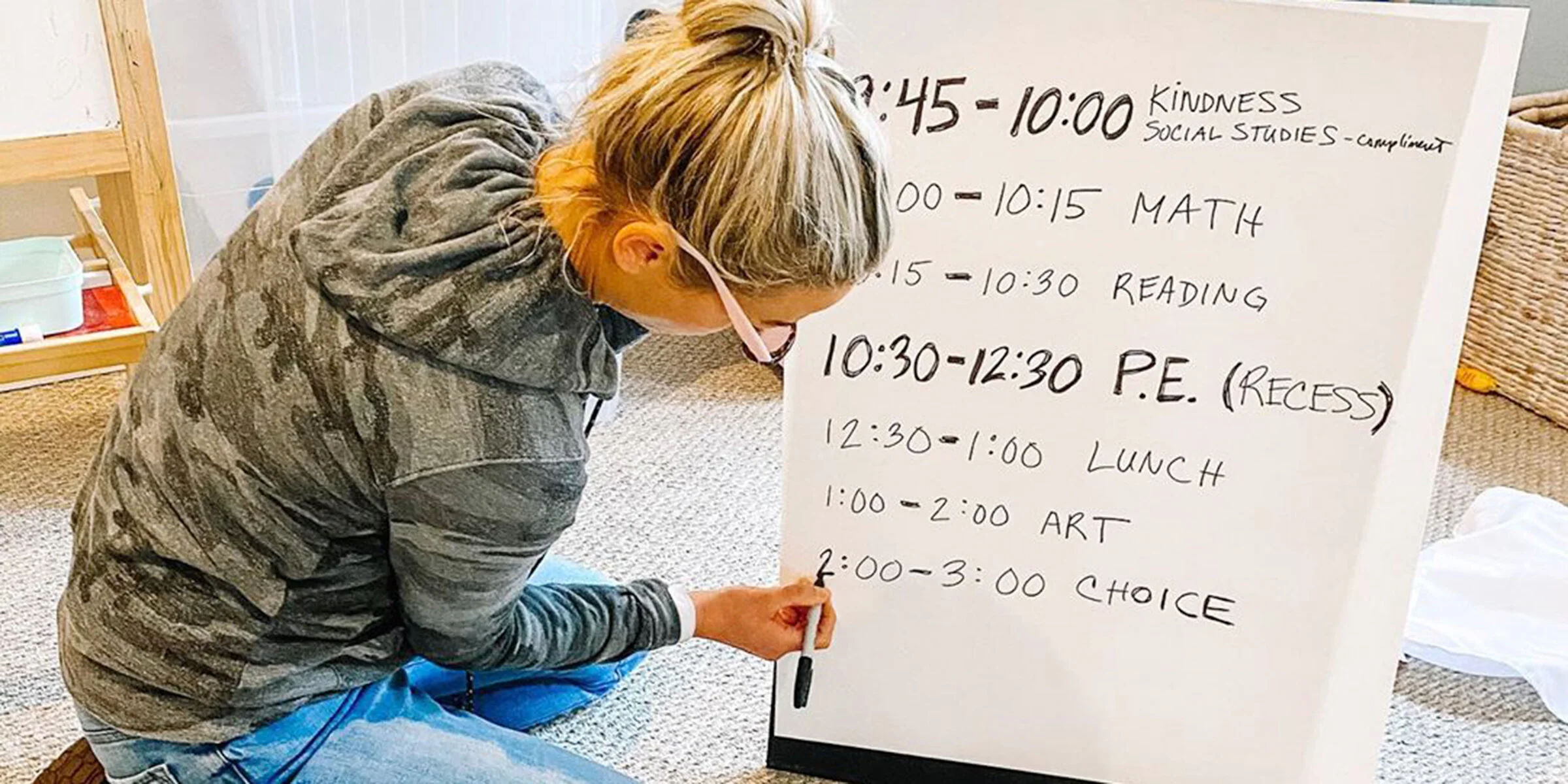We all hear about how important routines and schedules are for working from home and online schooling. However, many of us are having a hard time getting routines to stick. What happens if you cannot get your kid to shift into study mode or stick to a plan? Here are a few strategies to ensure home learning goes well based on this article for kids with educational needs.
1. Think about pomodoros – Most kids (and adults) are not going to be able to sustain focus unless the work is broken down into smaller segments. According to the pomodoro time management method, the ideal amount of time for adults (known as a pomodoro) is about 25 minutes followed by a 3-4 minute break. Says author and educator Anne Polin, adults can manage three to four pomodoro sessions whereas students in middle and high school do better with two to three pomodoros in a row followed by a longer break (15 mins). If your child cannot focus consistently for even 25 minutes, do not worry too much, shorten the time period and see what they are willing to do.
2. Allow the wiggles – Younger kids need to be active. If possible, set up a home environment made up of different “stations.” At our house, we have a reading station with books, a beanbag and blanket; a table for math, science and languages with pencils and worksheets; and an innovation station with lots of craft and building materials. Set a timer and have your child move from place to place for the various activities. For older children, try having a few effective workstations instead of just the bedroom and of course encourage them to take time to exercise and move.
3. Know peak performance times – Science suggests that the best time for our natural peak performance is late morning. In fact, our working memory and concentration gradually improve, peaking at about mid-morning and hitting a trough by around 3pm before increasing slightly over the evening. For teens who are experiencing changes in melatonin levels and delayed sleep cycles, their peak may be later in the morning than adults. There are also a small percentage of folks that are night owls and perform better in the evening. Bottom line: encourage kids to do the hard work or difficult subjects when they are optimally wired to focus. Also, schedule exercises during a lull in energy levels.
4. Remember connections are key– Connections are our “Vitamin C” for immunity and wellbeing. Kids need connections with their peers to keep motivated and stay emotionally healthy. The kind of classmate interactions schools facilitate may be variable. Encourage your children to set up study groups with their friends and regular times to chat and socialize online. A friend’s teen daughters recently had a virtual sleep over with a group of friends. Our son has regular FaceTime calls with classmates to work on assignments together. Don’t underestimate the power of technology and these little connections in keeping your child feeling positive and sticking to a routine.
